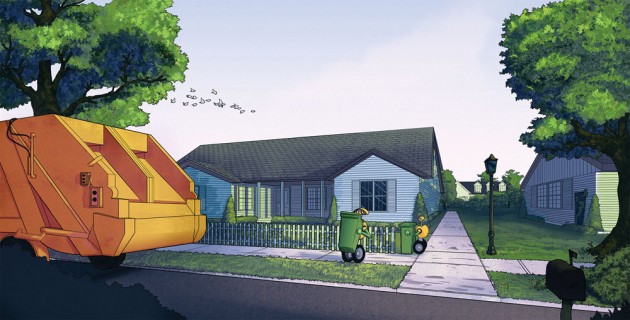
Volvo developing robot to handle curbside waste
by Canadian Manufacturing.com Staff

The project is a joint venture between Volvo, waste recycling company Renova and several universities
The project is a joint venture between Volvo and partners from Chalmers University of Technology and Mälardalen University in Sweden, Penn State University in University Park, Penn., and the waste recycling company Renova.
The project is called ROAR, for Robot-based Autonomous Refuse handling, and the goal is to introduce a robot that, with the help of instructions from a truck’s operating system, collects refuse bins in a neighborhood, brings them to a refuse truck and empty them. All of this occurs under the supervision of the refuse truck’s driver.
The purpose of ROAR is to demonstrate how we, in the very near future, will use smart machines to assist with a broad range of activities in society. This technology can be applied in many areas. Refuse collection is just one example.
“Within Volvo Group we foresee a future with more automation,” says Per-Lage Götvall, project leader for the Volvo Group. “This project provides a way to stretch the imagination and test new concepts to shape transport solutions for tomorrow.”
The three universities are part of Volvo Group’s Academic Partner Program, a network of twelve academic partners collaborating with Volvo for long-term cooperation in research and recruitment. The students have different tasks and roles. Mälardalens University will design the robot itself.
“It is exciting that we are combining advanced research with our training in robotics,” says Mikael Ekström, projectleader. ”Many students will work on this project, and it is a huge opportunity for them to learn both the technology and how to work in teams and in a real industrial context.”
At Chalmers University, students will develop the overall operating system.
“Chalmers has for many years developed the technology for the control and coordination of autonomous systems,” says Petter Falkman, associate professor, automation, at Chalmers, “and we see that we can deal with problems of the complex type that waste handling entails.This will be a fun and challenging project for our driven researchers and motivated students.”
The communication systems and control panels for the truck driver will be developed at Penn State’s Thomas D. Larson Pennsylvania Transportation Institute.
“We’re very lucky to have an amazing cohort of students who are well trained in automation technologies,” says Sean Brennan, lead of the Penn State team. “This project promises great opportunities for our students to not only engage with a cutting-edge vehicle project, but also to help define how society will interact daily with robotic systems. “
This work will continue until June 2016, when the technology will be tested on a vehicle developed by Renova.
“For many years Renova has been a leader in the development of vehicle technology dedicated to fostering a better environment and work environment,” says Hans Zackrisson, development manager at AO Logistics, Renova Environment.“This project shows the exciting possibilities for the future.”
